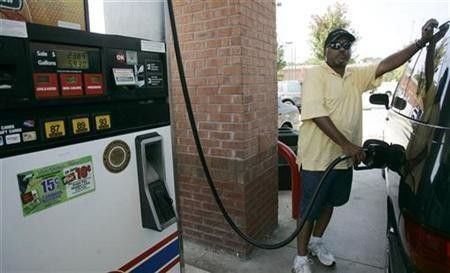U.S. group sets oil talks with China

A group of prominent business executives and national security figures will visit China next month as part of their drive to reduce U.S. dependence on oil.
Members of the private Energy Security Leadership Council will discuss possible U.S.-Chinese cooperation on oil security-related issues, said retired Navy Admiral Dennis Blair, a former U.S. director of national intelligence.
Can't we work on them (oil security issues) together? Blair said his fellow travelers would ask at meetings with Chinese government officials and business leaders. He cited what he called parallel U.S. and Chinese oil-market interests, including securing supplies at a reasonable price.
Blair was the top U.S. intelligence official from January 2009 until his resignation was requested by President Barack Obama in May after an alleged al-Qaeda airliner bombing attempt and an attempted car bombing of New York's Times Square.
He disclosed the China trip in an interview with Reuters after joining fellow council members to release sweeping recommendations designed to create a less oil-dependent U.S. transportation system.
Reliance on petroleum has created unsustainable risks to American economic and national security, said the council's report, titled Transportation Policies for America's Future.
The trip in mid-March will bring council members to a seminar with the Energy Research Institute of China's National Development and Reform Commission. Discussions will include new energy development and China-U.S. cooperation, said Justin Kitsch, a spokesman for Securing America's Future Energy, the council's parent group. He did not spell out which other council members would join Blair on the trip.
Wang Baodong, a Chinese embassy spokesman in Washington, replied: I'd say China and the U.S. have shared interests in safeguarding energy security and developing new energy.
We're ready to enhance cooperation with the U.S. for win-win results in this field, he added in an email.
China, the world's most populous country and the No. 2 oil consumer after the United States, has been scrambling to lock up long-term oil supply deals abroad to diversify its energy supply sources.
China is taking advantage of the economic downturn and lower asset values to step up its global acquisitions and financing of projects in upstream, midstream, and downstream sectors, the U.S. Department of Energy's Energy Information Administration said in a background note updated in November.
China emerged from being a net oil exporter in the early 1990s and became the world's third-largest net importer of oil in 2006. Its oil consumption growth accounted for about a third of the world's consumption growth in 2009, the background note said.
The Energy Security Leadership Council's report reflected concern that oil could be used as a strategic weapon against the United States by hostile states and extremists.
Oil dependence is a national security issue, and it deserves to be treated as such, Blair said in a joint statement with FedEx Corp Chief Executive Officer Frederick Smith, who co-chairs the council with retired Marine Corps Commandant General Paul Kelley.
Other prominent military figures who are members of the council include former Chief of Naval Operations retired Admiral Vern Clark, former Army Vice Chief of Staff retired General John Keane and former U.S. Transportation Command commander John Handy, a retired Air Force general.
Business executives in the group include Herbert Kelleher, founder and chairman emeritus of Southwest Airlines Co; Eric Schwartz, former co-chief executive officer of Goldman Sachs Group Inc's Goldman Sachs Asset Management; Michael Splinter, CEO of Applied Materials Inc; David Steiner, CEO of Waste Management Inc; and Michael Strianese, CEO of L-3 Communications Holdings Inc.
© Copyright Thomson Reuters 2024. All rights reserved.




















